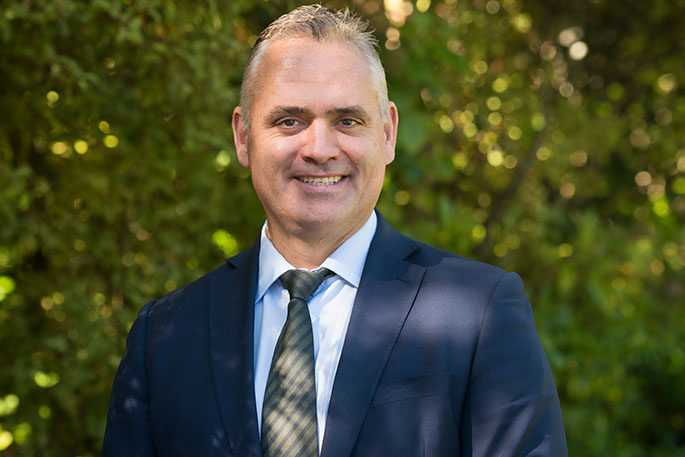
Fletcher Tabuteau is deputy leader of New Zealand First, Under Secretary for Regional Economic Development and a list MP based in Rotorua.
In February 2020, the Auditor General released a report acknowledging all the work underway to address New Zealand's water management challenges such as the Action for Healthy Waterways and the Three Waters Review.
He concluded that outside of those two work programmes there remains a need for greater central leadership to define a shared vision for New Zealand that sets out the strategic objectives and priorities for water management and how this can be collectively delivered.
In light of Covid-19 and the very real issue of climate change, water management has reached a matter of national urgency.
The highly visible plight of Hawke's Bay farmers with hectares of parched land and livestock at risk of starvation has further highlighted a gaping hole in New Zealand's infrastructure.
New Zealand First is a party that I believe can provide leadership and a voice of reason on water management in this contentious and sometimes emotional space.
It is increasingly clear we need smart and environmentally friendly water storage solutions to address the issues of climate change while at the same time power-up regional Aotearoa New Zealand to be a diverse and powerful productive entity.
We only use only 2 per cent of the plentiful water that lands in our country each year.
It's written in Labour's confidence and supply agreement with the Green Party to improve water quality, and shift to more diverse and sustainable land use including more forestry, improve water quality and prioritise achieving healthy rivers, lakes and aquifers with stronger regulatory instruments, funding for freshwater enhancement, winding down Government support for irrigation, and to better enforce the Resource Management Act.
But why would we wind down support for channelling water where it is needed when it is clear that we do not have enough reliable water to sustain our existing primary industries?
And while the world is grappling with a pandemic of catastrophic proportions and a massive economic fallout, we have an opportunity to position ourselves as a trusted food-producing nation.
We must stop demonising our farmers when urban pollution is worse.
Rather we should be looking at what our strategic advantages are and support those. This would include adapting to higher environmental standards and practices.
There are also huge opportunities available to diversify land and develop previously underutilised land, especially for lucrative niche high-end horticultural products.
We must find ways to better catch our water when it is plentiful, and use it smartly when it is scarce. At the very least, we should raise our catchment of rainfall to between 5-10 per cent.
Thankfully the Provincial Growth Fund, the brainchild of New Zealand First, has been a beacon of hope despite the anti-water storage brigade.
The PGF has recognised the benefits of water storage projects to grow our regions and to make this fit within Government imperatives has specified that these be smaller-scale, locally run and environmentally sustainable.
These projects are all bound by the PGF water principles which insist on environmental sustainability and delivering multiple benefits across a community.
Water storage does not need to be labelled an atrocity in our natural landscape if it is done tastefully and sustainably. We could decide on ‘no-go' areas and environmental and visual factors can be factored into the design.
Our Minister for Infrastructure and Regional Economic Development Shane Jones is a strong advocate for tailored water storage solutions. He announced as part of Budget 2020 the need to prioritise water alongside, transport, housing, environment and health. This was the only time water was mentioned in the Government's Budget 2020 package.
New Zealand First's spokesperson for Agriculture and Primary Industries Mark Patterson, who is also a sheep farmer from Lawrence, has spoken frequently about common-sense solutions for New Zealand's agricultural sector, including smart and tailored water storage and irrigation methods.
The freshwater reforms are a consequence of long term water quality problems in rural and urban New Zealand. A further challenge is water storage and economic productivity in our primary sector. In this sense, there is a need for robust leadership to ensure that water resilience becomes a physical reality and not policy palaver.
We urgently need a New Zealand-wide strategy for water management that brings all competing stakeholders to the table, not just some.
Appropriately stored water is a good thing and absolutely needs to be part of the solution in New Zealand's post-Covid-19 sustainable economic recovery.


{$commentCount}
Leave a Comment